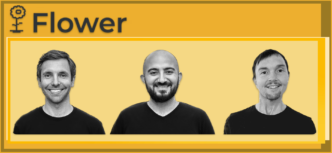UnitedHealth Group now operates over 1,000 AI applications across its business units, signaling a major shift toward artificial intelligence in healthcare. These tools are used throughout its insurance, health delivery, and pharmacy arms. From transcribing clinician conversations to processing claims and powering AI chatbots, UnitedHealth is leaning into digital innovation—even amid growing legal and ethical scrutiny.
The company also reports that 20,000 engineers are using AI to build software. Half of the applications use generative AI, while the rest rely on traditional models. Sandeep Dadlani, UnitedHealth’s Chief Digital and Technology Officer, said the mission is to make healthcare more accessible, accurate, and efficient.
“We’re part of the healthcare system, and we know we must help fix it,” Dadlani said. He joined the company in 2022 from Mars, where he served as Chief Digital Officer.
AI in Healthcare Faces Legal and Ethical Challenges
UnitedHealth’s rapid AI expansion arrives at a tense moment. In December 2024, the killing of a top executive triggered public outrage, while a February 2025 report by The Wall Street Journal revealed a Justice Department investigation into UnitedHealth’s Medicare billing.
Further controversy stems from a 2023 class-action lawsuit. It claims a flawed AI algorithm was used to deny claims unfairly. Though a judge dismissed most charges, two remain active. UnitedHealth insists the algorithm merely assisted human workers—not replaced them. The company has declined further comment.
Despite this, UnitedHealth is clear: AI won’t be used to deny claims, Dadlani said. Instead, AI supports processes like data lookup and missing information tracking. Around 90% of claims are currently auto-adjudicated, but this typically uses rule-based software—not AI. The remaining 10% require human involvement, often due to incomplete data.
That’s where generative AI steps in. UnitedHealth is building tools that can search across systems to fill information gaps—like missing benefits policies from employers. Based on this data, the AI either approves the claim or forwards it to a human for review.
Responsible AI: A Slow, Careful Rollout
UnitedHealth says it’s being pragmatic and responsible in its AI rollout. Use cases are reviewed by a Responsible AI board of 20–25 professionals. These include clinicians, legal experts, ethicists, and technologists. Most projects focus on cutting admin workload or enhancing the customer experience.
One success story is the AI-powered customer chatbot. It processed 18 million doctor searches in Q1 2025. For example, a user typing “stomach pain” gets directed to a gastroenterologist.
Another tool is being used by Optum, UnitedHealth’s health delivery division. With patient consent, it records and transcribes medical visits. AI also analyzes records to identify undiagnosed conditions, helping doctors double their diagnostic accuracy, early results show.
Still, there are concerns. Mandi Bishop of Gartner notes that trust in AI is low, especially in healthcare. “The stakes are high,” she said. “Mistakes can be life or death.”
UnitedHealth has responded cautiously. It’s taking a slow approach with clinical use cases, testing tools thoroughly before broad deployment. “My job is to be practical and responsible,” Dadlani said. “AI is exciting, but it must be handled with care.”
Eventually, UnitedHealth plans to offer its AI solutions to other healthcare companies. But for now, its focus remains on delivering real-world value without compromising on safety or ethics.













